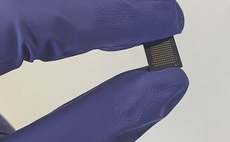Japanese firm NTT Docomo wants to be ready for commercial deployment by 2020
NTT Docomo, a Japanese mobile solutions provider, is working with mobile technology vendors Nokia, Samsung, Alcatel-Lucent, Ericsson, Fujitsu and NEC to conduct trials of emerging 5G mobile communi...
To continue reading this article...
Join Computing
- Unlimited access to real-time news, analysis and opinion from the technology industry
- Receive important and breaking news in our daily newsletter
- Be the first to hear about our events and awards programmes
- Join live member only interviews with IT leaders at the ‘IT Lounge’; your chance to ask your burning tech questions and have them answered
- Access to the Computing Delta hub providing market intelligence and research
- Receive our members-only newsletter with exclusive opinion pieces from senior IT Leaders























